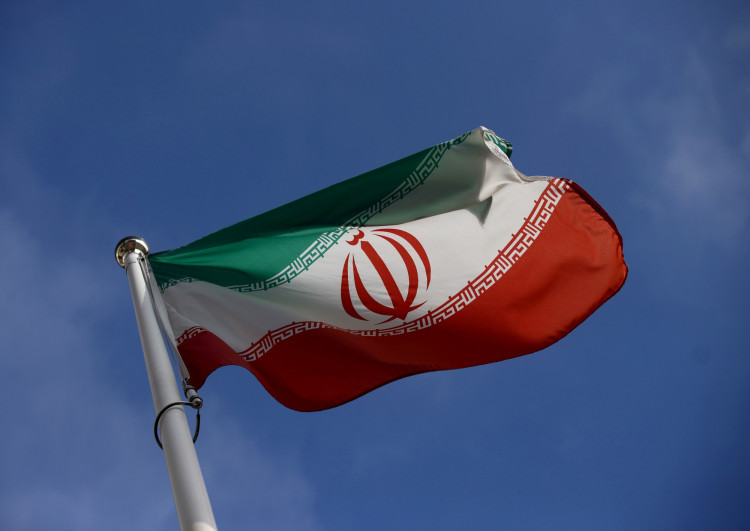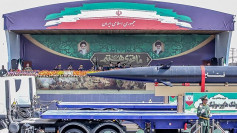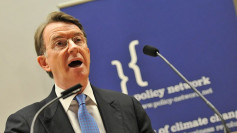Representatives from China, Russia, and Iran met in Beijing on Friday to call for the removal of U.S. sanctions on Tehran and a return to diplomatic negotiations on Iran's nuclear program. The meeting, which underscored the three nations' alignment against Washington's "maximum pressure" strategy, comes as President Donald Trump has renewed his push for a new nuclear deal with Iran, even as he holds out the possibility of military action.
"The three countries reiterated that political and diplomatic engagement and dialogue based on the principle of mutual respect remains the only viable and practical option in this regard," China's Vice Foreign Minister Ma Zhaoxu said in a joint statement, alongside Russia's Deputy Foreign Minister Sergey Ryabkov and Iran's Deputy Foreign Minister Kazem Gharibabadi.
The talks followed Trump's decision to impose fresh sanctions on Iran while also sending a letter to Iran's Supreme Leader Ayatollah Ali Khamenei in an effort to reinitiate negotiations. While the contents of the letter have not been made public, Iranian officials have offered conflicting signals on their willingness to engage, with Khamenei dismissing discussions with a "bullying government."
Trump's 2018 withdrawal from the 2015 Joint Comprehensive Plan of Action (JCPOA), commonly known as the Iran nuclear deal, has led to escalating tensions in the region. Since then, Iran has steadily increased its uranium enrichment, now reaching 60% purity-just below weapons-grade levels-while exceeding the stockpile limits set by the original agreement. Under the JCPOA, Iran was permitted to enrich uranium only up to 3.67% and maintain a stockpile of 300 kilograms (661 pounds). According to the International Atomic Energy Agency, Iran's current stockpile has swelled to over 8,200 kilograms (18,000 pounds).
China and Russia, both signatories to the original nuclear agreement, have strengthened their ties with Iran in recent years. Beijing has increased its involvement in Middle Eastern diplomacy, brokering the 2023 rapprochement between Saudi Arabia and Iran. Moscow, meanwhile, has relied on Iranian-manufactured drones for its war in Ukraine, deepening military and economic cooperation between the two nations.
During the meeting, Ma emphasized the need to "eliminate the root causes of the current situation and abandon sanctions pressure and threats of force." He also called on all parties to create a "favorable atmosphere and conditions for diplomatic efforts." The joint statement released by the three countries urged nations to "avoid actions that escalate the situation" and work toward peaceful resolution through negotiations.
The timing of the meeting reflects growing urgency among global powers to address Iran's nuclear program amid heightened conflicts in the Middle East. Trump, in an interview with Fox News last week, said that Iran faces two options: "militarily, or you make a deal." He added, "I would prefer to make a deal, because I'm not looking to hurt Iran."
Despite Trump's push for renewed diplomacy, Iran has shown little interest in engaging with his administration. Khamenei has dismissed negotiations, saying Iran refuses to speak with "bully states." Meanwhile, China and Russia appear to be positioning themselves as key intermediaries in shaping a new agreement, a move that could shift power dynamics in the region.
Chinese officials have repeatedly voiced opposition to U.S. sanctions on Iran, criticizing Trump's "maximum pressure" campaign as a destabilizing factor. Beijing has also warned against any military escalation, urging the U.S. to take a diplomatic approach. The Chinese delegation stated that "relevant parties should be committed to eliminating the root causes of the current situation."
The European Union and several U.S. allies have been conducting backchannel negotiations with Iran, exploring potential pathways to revive elements of the 2015 nuclear agreement. However, the latest developments suggest that China and Russia are looking to assert greater influence over any future deal.
Observers note that China's involvement serves its broader goal of challenging U.S. dominance in global affairs. "China is increasingly motivated to deepen its involvement (in the Iran nuclear issue) to safeguard its interests, expand its regional influence and reinforce its image as a responsible global power," said Tong Zhao, a senior fellow at the Carnegie Endowment for International Peace.
By bringing both Russia and Iran into the discussion, China is also highlighting its preference for non-Western diplomatic solutions to international security challenges. China "may also aim to highlight the significance of non-Western approaches to resolving global challenges," Zhao said.
China's strategy in the Middle East reflects a careful balancing act. While Beijing maintains strong economic and political ties with Tehran, it also seeks to preserve growing relations with Saudi Arabia and other Gulf nations. Analysts suggest that China is unlikely to take a direct mediating role in nuclear negotiations but sees the current diplomatic push as an opportunity to enhance its global standing.
For Iran, the meeting offered a chance to demonstrate its alignment with Beijing and Moscow amid international isolation. Tehran has deepened its cooperation with Russia, particularly in military affairs, while relying on China as a crucial economic partner. The three countries' joint statement reaffirmed their commitment to the Treaty on the Non-Proliferation of Nuclear Weapons, while also endorsing Iran's claim that its nuclear program remains peaceful.
Russia has also expressed interest in participating in negotiations between the U.S. and Iran. A Kremlin spokesperson stated that Moscow is open to playing a role in facilitating dialogue, particularly as U.S.-Russia relations warm under Trump's leadership.
Still, significant obstacles remain in achieving a new nuclear deal. Iran's hardline stance against engaging with Washington, coupled with Trump's insistence on a stronger agreement than the JCPOA, leaves little room for immediate progress. Analysts caution that without a diplomatic breakthrough, tensions in the region could escalate further.
Sanam Vakil, director of the Middle East and North Africa program at Chatham House, described the ongoing diplomatic efforts as "competing to solve the issue." She noted that Russia and China are aligned in "not wanting to see Iran weaponize its nuclear program," but their vision for a potential deal may differ from that of the U.S. and European powers.





